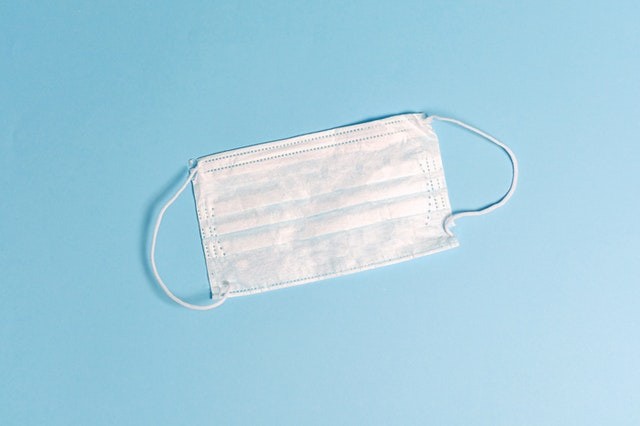The massive need for face masks since the covid-19 pandemic has swept the world and has resulted in large manufacture of disposable masks, but it's now feared that if not disposed appropriately can cause a huge threat to the natural planet.
New research assessed across the earth shows that humans are presently using mind-blowing 129 billion face masks each month. The average usage of 2.8 million masks is taking 31 days in a month around the world to be used in a minute

An Increase in Environmental Risks
Researchers now caution that the total amount of masks, with their plastic makeup, presents an increase in environmental risk and efforts should be made to keep it from becoming the subsequent plastic crisis.
University of Southern Denmark environmental toxicologist Elvis Genbo Xu and Princeton University expert in civil andenvironmental engineer professor Zhiyong Jason Ren explained that "Disposable masks are plastic properties, that can't be readily biodegraded but may shatter into tiny plastic grains, known as nano and microplastics that widespread in ecosystems."
The large creation of disposable masks is on a related scale as plastic containers, which is approximated to be 43 billion each month. Researchers explained that unlike plastic containers, of which an estimated 25 percent are reused, there is a formal recommendation on mask reprocessing, giving rise to more possibility to be inappropriately disposed.
ALSO READ : Environmental Cost of Doing Laundry
Micro-Sized Components
If not disposed for reprocessing, like other plastic rubbish, disposable masks can finish upt in the surroundings, oceans, and clean water systems, where weathering can create a huge number of micro-sized components - funnier than 5mm in just a week and more fragment smaller than 1 micrometer into nano plastics.
Previous summer marine biologists cautioned that inappropriate disposal of pandemic-related rubbish meant there could quickly be "much masks over jellyfish" in the Mediterranean Sea.
Nanoparticles Worries
A representative of the department of Alpes-Maritimes Eric Puget who is a French politician explained that polypropylene nanoparticles producing these masks which safeguard humans, risk everly causing problems in our ecosystems and their biodiversity
The researchers presently caution that the makeup of the mask means they breakdown very quickly into harmful micro-sized particles. When rotting in the environment, the masks might discharge more micro-sized plastics, quickly and simpler than huge plastics like plastic bags.
The scientists emphasized they don't precisely understand how masks add to the massive number of plastic waste noticed in the environment - simply because no data on the degradation of masks exist in nature.

Mask-Only Waste Bins
Dr. Genbo explained: "Though we understand that, similar to other plastic residues, disposable masks may also pile up and discharge dangerous biological and chemical substanceswhich is a heavy metals such as bisphenol-A, adequately as pathogenic micro-organisms. These may present indirect negative effects on plants, humans, and animals."
The scientists have advised governments to create mask-only waste bins for compilation and disposal and said other ways for lessening the impact of the masks could be for many people to accept using reusable cotton masks, expanding biodegradable disposable masks, and executing formalized trash management for expunging of masks.
RELATED ARTICLE : Despite its Benefits, Technology is also Responsible for Many Environmental Concerns
For more news, updates about environmental risks and similar topics don't forget to follow Nature World News!
© 2025 NatureWorldNews.com All rights reserved. Do not reproduce without permission.





